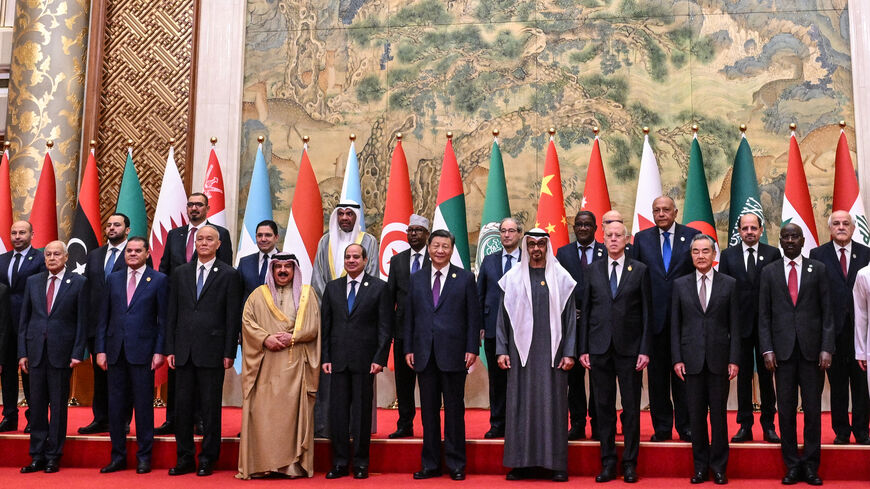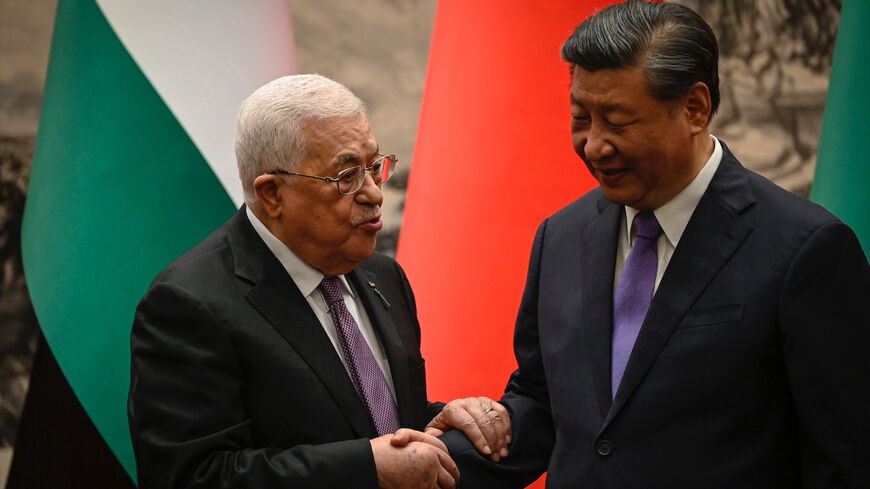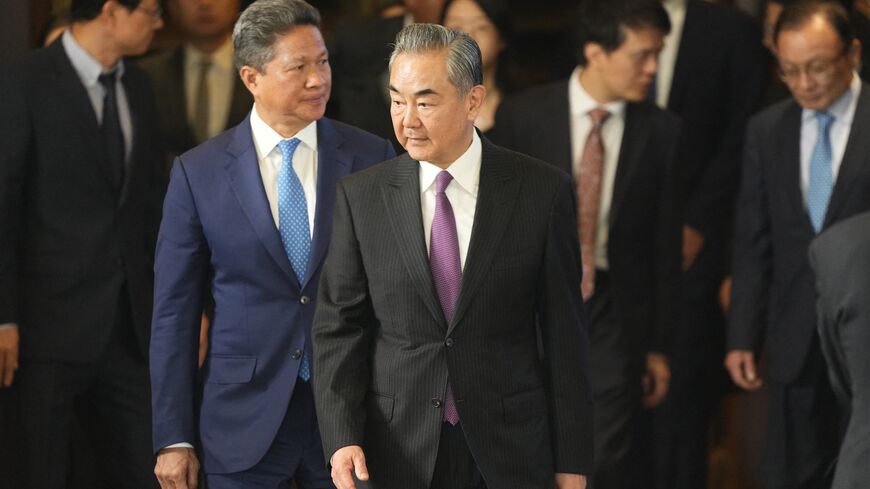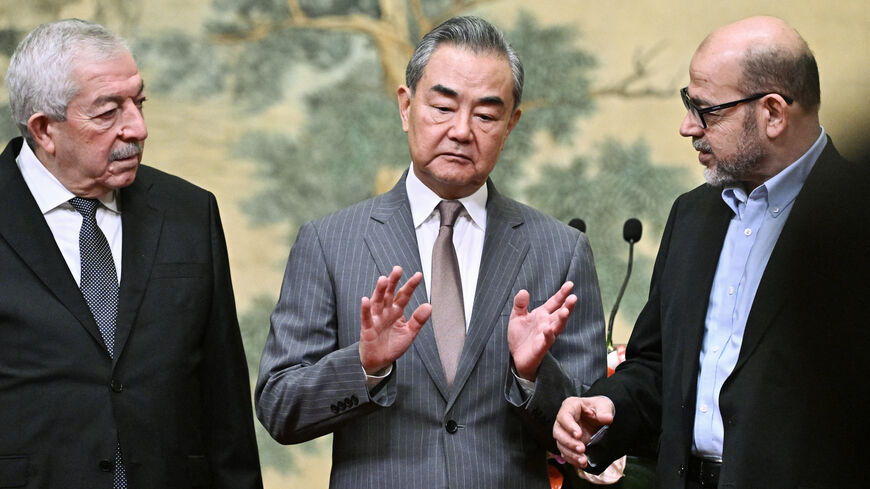China’s Middle East diplomat meets Hamas' Haniyeh in Qatar
China confirmed a meeting between a Foreign Ministry official and Hamas’ political chief Ismail Haniyeh in Doha as Beijing seeks a wider role in the region.
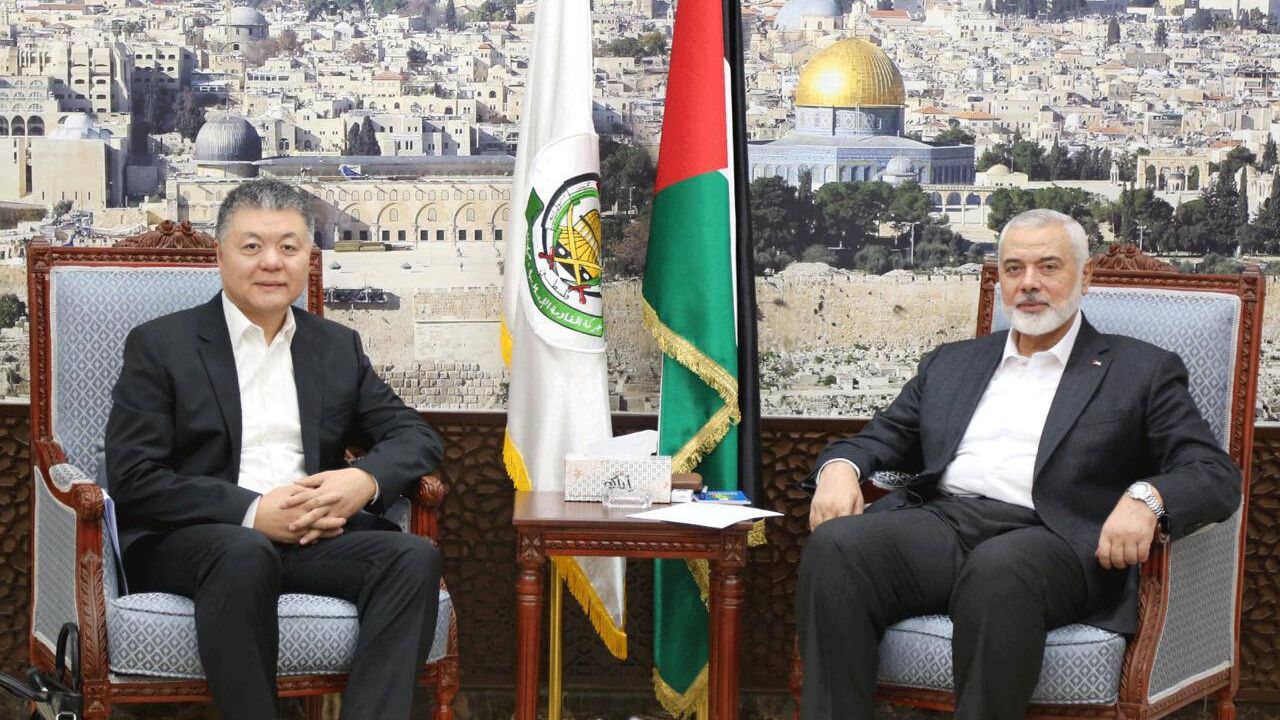
China’s Foreign Ministry confirmed a meeting between Chinese diplomat Wang Kejian and the head of Hamas’ political bureau, Ismail Haniyeh, in Qatar over the weekend, in the first publicly acknowledged encounter between officials from China and the Palestinian movement since the Israel-Hamas war erupted in October.
Kejian, an ambassador for the Chinese Foreign Ministry's West Asia and North Africa department, met Haniyeh in the Qatari capital Doha on Sunday and the two “exchanged views on the Gaza conflict and other issues,” a Foreign Ministry readout released on Tuesday read.
Kejian commended the close and historic relationship between the Palestinian and Chinese peoples and affirmed China’s support for the Palestinian cause.
Hamas said in a Monday statement on Telegram that Haniyeh, who resides in Qatar, hosted Kejian for talks on the latest developments in the Gaza Strip. China’s ambassador to Qatar, Cao Xiaolin, and other senior Hamas officials also attended the meeting.
According to the Hamas statement, they discussed ways to end the Israeli war on the Gaza Strip and deliver urgent humanitarian aid to civilians. Hamas reported that during the meeting, Haniyeh stressed the urgent need to end the Israeli bombardment of the Gaza Strip and see the displaced return home, as well as for the withdrawal of Israeli forces from the enclave.
He also called for the establishment of an independent Palestinian state with Jerusalem as its capital.
The Hamas official praised China for its pro-Palestinian positions and for delivering aid to the Gaza Strip.
3/18/24: 中共外交部特使王克俭昨天表示,哈马斯是“巴勒斯坦民族结构的一部分,中国热衷于发展与哈马斯的关系”
— JohnZhangSV (@JohnZhangSV) March 18, 2024
昨天,中共外交部特使王克俭、中国驻卡塔尔大使曹小林在多哈会见哈马斯政治局局长伊斯梅尔·哈尼亚。 王克俭表示,哈马斯是巴勒斯坦民族结构的一部分,中方热衷于发展与其关系。… pic.twitter.com/7sqGDt57tx
The Hamas statement also quoted Kejian as saying that the “Hamas movement is part of the Palestinian national fabric and China is keen on preserving its relations with it.”
The diplomat further stressed the need to end the war and the killing of Palestinians.
Chinese diplomacy in region
Kejian’s meeting with Hamas officials comes as part of a regional tour he kicked off last week as China seeks a wider role in the region.
On March 10, on the one-year anniversary of the Chinese-brokered deal between Saudi Arabia and Iran, the Chinese diplomat was in Cairo, where he met with Assistant Secretary-General of the Arab League Khalid Manzalawi. They discussed the war in Gaza, according to a press statement released by the Chinese Embassy in Egypt.
Kejian then traveled to Ramallah on March 13 and held talks with Palestinian Foreign Minister Riyad al-Maliki. During the meeting, Kejian stressed his country’s support for a two-state solution and an immediate cease-fire in the Gaza Strip, according to a Chinese Foreign Ministry statement.
In a subsequent visit to Israel last Thursday, Kejian reiterated his calls for a cease-fire and an end of hostilities in Gaza during talks with Israeli officials, the Foreign Ministry said in a statement.
Last June, China expressed willingness to mediate the Palestinian-Israeli conflict. It hosted Palestinian President Mahmoud Abbas last June and was planning to receive Israeli Prime Minister Benjamin Netanyahu last October. But the Gaza war disrupted China’s plans. Israel has been leading a devastating air and ground campaign in the Gaza Strip since Hamas’ cross-border assault Oct. 7, during which militants killed around 1,200 people and took over 240 others hostage.
Since then, more than 31,000 Palestinians, mostly women and children, have been killed in Gaza while over 73,000 others have been injured, according to the local health authorities. The war has also forced 1.7 million people into displacement and the United Nations is warning of a looming famine.
Since the onset of the war, China has called for a cease-fire and expressed support for the establishment of an independent Palestinian state based on the two-state solution. However, Beijing has stopped short of condemning Hamas.
Days after the war, China dispatched its special envoy for the Middle East, Zhai Jun, to the region. He made stops in Egypt and Qatar as part of efforts to push for a solution to the conflict.
Beijing has also backed several UN Security Council resolutions on the Gaza conflict since October in contrast with Washington, which has repeatedly used its veto power.
In recent years, Beijing has sought to increase its influence in the Middle East by strengthening its political and economic ties with the countries of the region, successfully brokering the landmark Iranian-Saudi normalization deal in March 2023.

